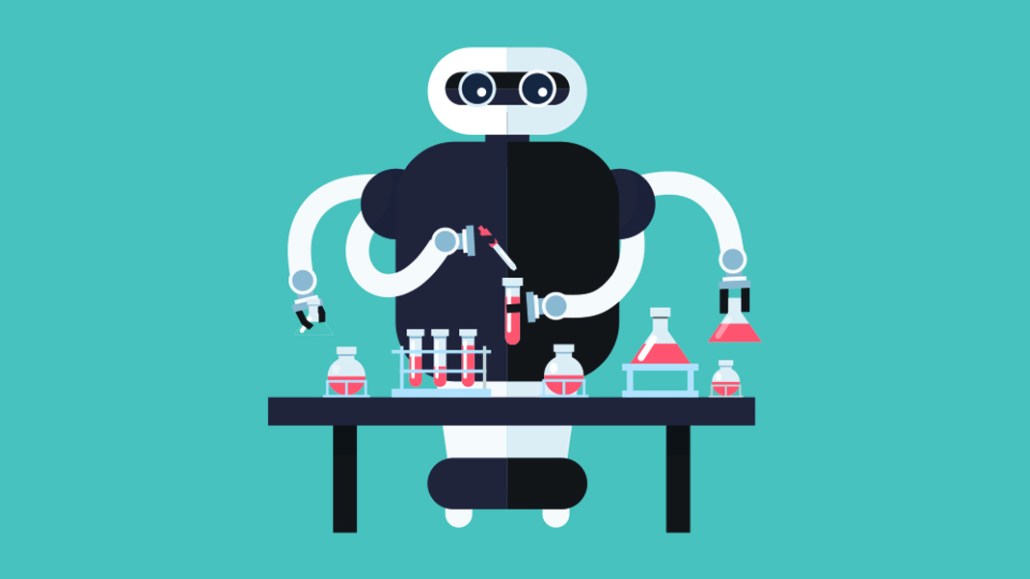Save 50% on a 3-month Digiday+ membership. Ends Dec 5.

Smart artificial intelligence platforms are now handling some media planning and buying work that is traditionally done by media agencies.
Maxus tested a few AI platforms over the past year and is now mainly using one called Lucy to process and rearrange structured data for better efficiency. For instance, a hotel chain recently wanted to understand how its visitor profiles overlap across its business, economy and high-end hotel offerings, so Maxus used Lucy to isolate different audience segments and their media exposure for the client. The agency also tested Lucy in Asia for a cosmetics brand to understand audience segmentation across its products (lipsticks and mascara, for example) and how that influenced media consumption across TV, digital and out of home by country.
David Gaines, chief planning officer for Maxus’ North American operations, thinks agencies should view AI platforms as an opportunity for collaboration, rather than competition.
“AI is not going to rupture media agencies. Technology like this will be how we evolve,” said Gaines. “Too much manual labor gets in the way of tapping into the talent we have and making clients benefit from that value.”
AI software helps marketers save time by combing through a plethora of data and distributing a solution fast. An extreme case is an AI platform called Albert that Dole Asia used for a digital campaign to handle all the media buying, optimization and placement autonomously. Technologies like Albert work well for a business that operates heavily in the direct response space with lots of call-to-action ads, but if a brand wants to create reasons for consumers to choose it over its competitors, its media strategy needs to be balanced with communications planning, Gaines said.
“If five car brands use the same AI tool, the platform will make very similar media planning and buying suggestions. So what is the differentiator?” he said. “You still need a human touch.”
It is also hard for platforms like Lucy to process unstructured data, including consumer surveys, media consumption data and a client’s first-party data. Media planners need to formulate that data first in order for AI to restructure them. This is especially time-consuming when it comes to programmatic, Gaines said.
Ad position: web_incontent_pos1
“It’s amazing how much time our media planners still spend on copying and pasting data in Excel so we can compare data sources to data sources and use them as future-facing insight, rather than just a view on what has already happened,” he said.
Lucy illustrates both the strengths and the limitations of AI platforms. For example, Lucy can suggest the best channels for a campaign, including search, social, magazine, outdoor and TV. But it can’t make recommendations about which specific social network — Facebook, Snapchat or Twitter, for instance — to use because the industry doesn’t have a consistent measurement across the different platforms. And the AI platform may get confused about questions like, “What kind of people stay at these hotels?” simply because the options and answers are currently broad, Gaines explained.
“Lucy is excellent at delivering a collection of data that is effectively the observations,” he said. “But what AI can’t do right now is then tell you what the insight is from those observations, which means we still have a job for a while.”
More in Marketing

Ulta, Best Buy and Adidas dominate AI holiday shopping mentions
The brands that are seeing the biggest boost from this shift in consumer behavior are some of the biggest retailers.

U.K. retailer Boots leads brand efforts to invest in ad creative’s data layer
For media dollars to make an impact, brands need ad creative that actually hits. More CMOs are investing in pre- and post-flight measurement.
Ad position: web_bfu




